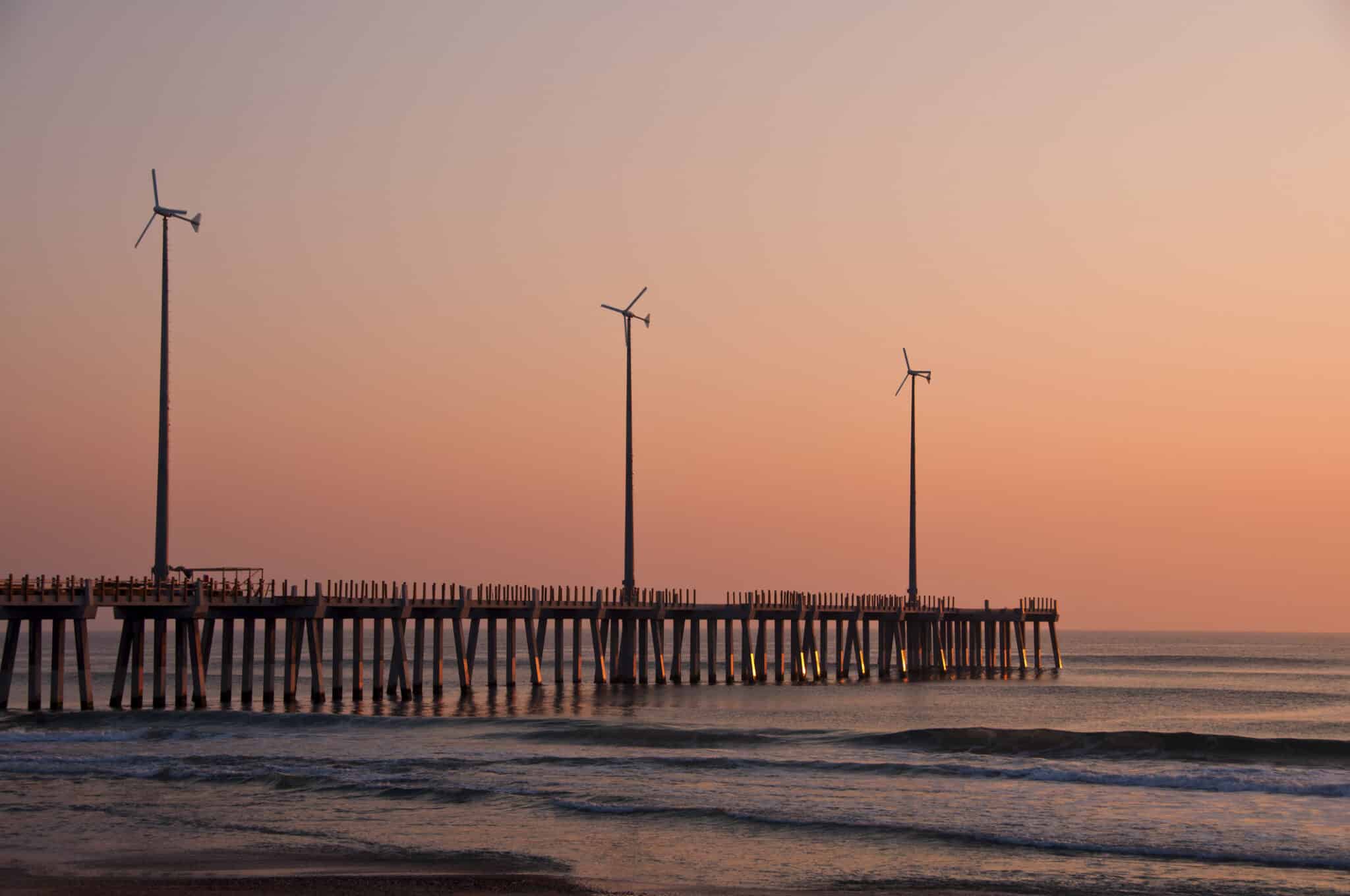Products You May Like
Wind turbines in the Outer Banks of North Carolina. Tetra Images / Getty Images
 Why you can trust us
Why you can trust us
Founded in 2005 as an Ohio-based environmental newspaper, EcoWatch is a digital platform dedicated to publishing quality, science-based content on environmental issues, causes, and solutions.
The Biden administration on Tuesday unveiled a new plan to work with the ocean to mitigate and adapt to the climate crisis.
President Joe Biden announced the publication of the first Ocean Climate Action Plan in U.S. history at the White House Conservation in Action Summit, during which he also officially named two new national monuments and asked the Secretary of Commerce to consider a National Marine Sanctuary in the U.S. waters surrounding the Pacific Remote Islands.
“We can reduce emissions by building offshore wind farms, better protect our coastal and fishing communities from worsening storms, changing fisheries and other impacts on climate change,” Biden said, as USA TODAY reported.
The Ocean Climate Action Plan has three main goals:
- Achieve carbon neutrality.
- Work with the oceans to develop nature-based solutions to store carbon dioxide, reduce the risk from the climate crisis and protect communities and ecosystems from inevitable changes.
- Work with the ocean to boost the resilience of communities to those same changes.
To accomplish these goals, the report underscored eight priority actions, among them boosting offshore wind and other ocean-based renewable energy projects, decarbonizing maritime shipping, conserving and restoring marine and coastal carbon sinks and creating more marine protected areas. The Biden administration has already promised to protect 30 percent of U.S. land and water by 2030.
“Guiding these actions is a commitment to be responsible stewards of a healthy and sustainable ocean; advance environmental justice; engage with communities, Tribal Nations, and Indigenous Peoples; act based on evidence, science, and Indigenous Knowledge; and integrate and coordinate actions across the Federal Government,” Ocean Policy Committee co-chairs Arati Prabhakar and Brenda Mallory wrote in a letter introducing the plan.
The Biden administration first announced its intention to draft an ocean climate plan to celebrate World Ocean Day of 2022. The final publication was widely welcomed by ocean advocacy groups.
Learn More About Solar Energy From EcoWatch
“This Ocean Climate Action Plan is the first comprehensive approach that the U.S. has taken to leveraging the power of the ocean in the fight against climate change,” Ocean Defense Initiative Director Jean Flemma said in a statement emailed to EcoWatch. “The plan should inspire a ripple effect of powerful climate actions from coast-to-coast that will slash emissions and help frontline communities. Still, a plan is only as strong as its implementation. We look forward to working with the Biden Administration to ensure strong ocean climate action policies are adopted across federal agencies and help the communities that need it most.”
Some concerns about implementation include the broader impact of certain ocean-based climate solutions highlighted for study, Inside Climate News noted. One such project would seed parts of the ocean with minerals that would encourage the growth of photosynthetic plankton. This would draw down carbon dioxide but might disrupt other natural marine cycles. Overall, however, ocean advocates are happy to see recognition of the role the ocean already plays in lessening the impact of the climate crisis, as it absorbs around 90 percent of extra warming.
“Ocean policy is often overlooked in discussions of climate action and climate solutions,” Oceana Senior Director of Federal Policy Lara Levison told USA TODAY. “There’s so much emphasis on what’s happening on land and not nearly enough focus on the ocean.”
The group overall praised the plan, but urged the administration to do more to limit offshore oil and gas drilling. Recently, Biden has come under fire for approving the controversial Willow oil drilling project in Alaska. In its most recent report, the Intergovernmental Panel on Climate Change has said that existing fossil fuel projects would take up the carbon budget for limiting warming to 1.5 degrees Celsius above pre-industrial levels.
“It’s reassuring that President Biden is taking the climate crisis seriously and ensuring that our oceans are factored into the plan to address it,” Oceana’s Vice President for the United States Beth Lowell said in a statement. “To date, our oceans have helped protect us from the worst impacts of climate change, and we know they can play an outsized role in keeping the planet from warming to catastrophic levels. But in order for that to happen, countries like the United States must stop the expansion of dirty and dangerous offshore drilling.”
The group has calculated that, if the U.S. government banned offshore drilling in unleased federal waters, it could prevent more than 19 billion tons of greenhouse gas emissions from entering the atmosphere and stave off more than $720 billion in damages.
Subscribe to get exclusive updates in our daily newsletter!
By signing up, you agree to the Terms of Use and Privacy Policy & to receive electronic communications from EcoWatch Media Group, which may include marketing promotions, advertisements and sponsored content.
